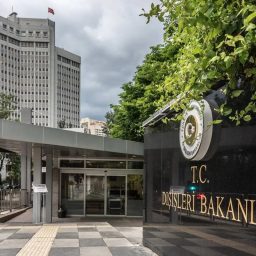History reminder: The Apartheid Regime in South Africa. A Dark Chapter in Human History!

Photo: Reuters
The roots of Apartheid can be traced back to earlier colonial policies that segregated South Africans. However, it was in 1948 that the National Party, led by the Afrikaner community, formalized Apartheid when it came to power. The regime designed a complex system that classified individuals into racial groups—white, black, colored (mixed race), and Indian. This classification had profound implications for every aspect of life, including legal rights, education, healthcare, and access to resources. Under Apartheid, the Population Registration Act of 1950 required all South Africans to be racially classified. The Group Areas Act of 1950 enforced residential segregation, leading to forced removals of non-white South Africans from areas designated as “whites only.” These areas often had better infrastructure and services, while non-white neighborhoods were under-resourced and overcrowded. Non-whites were also provided with inferior education through the Bantu Education Act of 1953, designed to prepare them for lives as laborers. The regime passed a myriad of laws to cement Apartheid, such as the Prohibition of Mixed Marriages Act and the Immorality Act, which banned marriage and sexual relations between races. The pass laws, which controlled the movement of black South Africans, further entrenched their second-class status. Blacks were required to carry “passbooks” whenever they traveled outside of their designated areas, a practice that was both humiliating and restrictive. The Apartheid government’s policies sparked both domestic and international outrage. Inside South Africa, numerous resistance movements emerged, with the African National Congress (ANC) being the most prominent. Leaders like Nelson Mandela, Oliver Tambo, and Walter Sisulu became figureheads of the anti-Apartheid struggle. The ANC initially advocated for peaceful resistance but eventually resorted to armed struggle after the Sharpeville Massacre in 1960, where police killed 69 protesters.

International opposition to Apartheid also grew, leading to South Africa’s increasing isolation from the global community. The United Nations condemned Apartheid and imposed economic sanctions, while countries around the world divested from South African companies. This international pressure, combined with internal resistance, began to weaken the Apartheid system. The turning point came in the late 1980s when President F.W. de Klerk began to dismantle Apartheid. In 1990, he released Nelson Mandela from prison after 27 years and lifted the ban on the ANC and other opposition parties. The subsequent negotiations between the government and the ANC led to the end of Apartheid. South Africa held its first democratic elections in 1994, which were won by the ANC, and Mandela became the country’s first black president. The legacy of Apartheid is profound and enduring. South Africa continues to grapple with the socioeconomic disparities that Apartheid entrenched. Despite the formal end of the regime, the country faces challenges like inequality, unemployment, and racial tensions, which are remnants of the segregationist policies. Post-Apartheid South Africa embarked on a journey of reconciliation and healing. The Truth and Reconciliation Commission (TRC), established in 1995 and chaired by Archbishop Desmond Tutu, was a critical part of this process. The TRC aimed to uncover the truth about human rights violations that occurred during Apartheid and to foster reconciliation between former adversaries. It provided a platform for victims to share their experiences and for perpetrators to confess their crimes, often in exchange for amnesty. This process was not without controversy, but it was a necessary step for a nation seeking to build a new identity based on democratic values and human rights. Education has been a significant focus in post-Apartheid South Africa. Efforts have been made to desegregate schools and universities and to provide equal access to education for all. However, the quality of education remains uneven, and many non-white students still attend underfunded schools. The government has also implemented affirmative action policies, such as Black Economic Empowerment (BEE), to redress the inequalities of Apartheid and promote economic participation among previously marginalized groups. The economic landscape of South Africa was also profoundly shaped by Apartheid. The policies of segregation and exploitation created a skewed economy with a small white minority controlling most of the wealth and resources. Transforming this has been a monumental task. Land reform, intended to redistribute land to black South Africans dispossessed under Apartheid, has been a contentious and slow-moving process. The gap between the rich and the poor remains one of the widest in the world, illustrating the enduring economic legacy of the Apartheid era. Culturally, South Africa has made strides in embracing its diversity, often referred to as the “Rainbow Nation.” Arts and culture have been vital in expressing the narratives of those who were silenced during Apartheid and in forging a new national identity. Music, literature, and film have played essential roles in this cultural renaissance, with artists like Hugh Masekela, Nadine Gordimer, and John Kani contributing to a vibrant South African cultural scene. In the international arena, South Africa has become an advocate for human rights and democracy, drawing on its own experiences of oppression and resistance. The country’s foreign policy often reflects its commitment to these principles, and it has played a significant role in peacekeeping and conflict resolution in other parts of Africa. The history of Apartheid is a somber reminder of the capacity for human injustice. Yet, it also tells a story of resilience, resistance, and the triumph of the human spirit. As South Africa continues to confront the shadows of its past, it also moves forward, striving to create a society based on equality and justice for all its citizens. The Apartheid regime will always be remembered as a stark reminder of the destructive power of racial division and the importance of safeguarding human rights to prevent such a system from ever arising again.
By Ovidiu Stanica
















